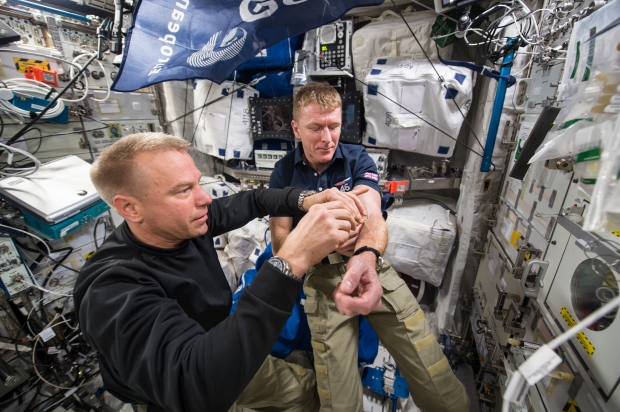A world-first study on the problem has been published in Nature Medicine.
Fourteen astronauts were studied over their six-month space missions, having direct measurements of their red blood cells taken. The study found that the astronauts lost 54% more red blood cells in space than they would otherwise on Earth, about 3 million per second being created and destroyed compared to only 2 million on Earth. The same result was observed for both female and male astronauts.
"Space anemia has consistently been reported when astronauts returned to Earth since the first space missions, but we didn't know why. Our study shows that upon arriving in space, more red blood cells are destroyed, and this continues for the entire duration of the astronaut's mission," said lead author Dr. Guy Trudel, a rehabilitation physician and researcher at The Ottawa Hospital and professor at the University of Ottawa.
Of the fourteen returning astronauts, thirteen had their blood drawn and tested, and five of those thirteen were considered clinically anemic. Within three to four months, space-related anemia was reversed as red blood cells returned to normal levels.
"Thankfully, having fewer red blood cells in space isn't a problem when your body is weightless. But when landing on Earth and potentially on other planets or moons, anemia affecting your energy, endurance, and strength can threaten mission objectives. The effects of anemia are only felt once you land, and must deal with gravity again," Dr. Trudel continued.
You can read more from the study here.



